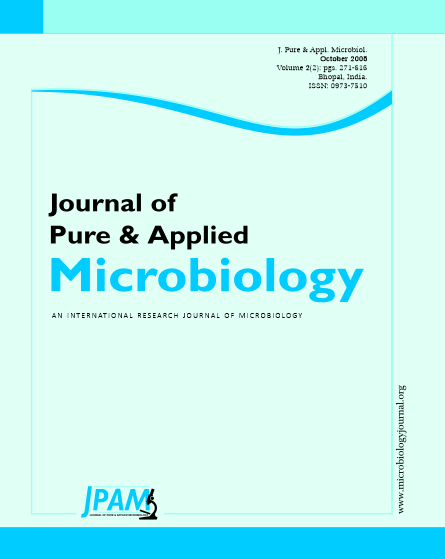The importance of Bacillus thuringiensis (Bt) in crop pest management is now well established. Acting as an environmentally safe manner, Bt is an alternative to many chemical insecticides and for the control of chemically resistant insect pests. Bt is ubiquitous soil bacteria can be isolated readily from soil, insects, stored product material, sericulture environment, the phylloplane etc. The aim of this study was the isolation of Bt from agroecology of central India. Physiological, morphological and biochemical characters were studied for isolation and identification of different Bacillus thuringiensis strains in terms of their protein toxicity to the crop pests.
Bacillus thuringiensis (Bt), Isolation, Ecosystem
© The Author(s) 2008. Open Access. This article is distributed under the terms of the Creative Commons Attribution 4.0 International License which permits unrestricted use, sharing, distribution, and reproduction in any medium, provided you give appropriate credit to the original author(s) and the source, provide a link to the Creative Commons license, and indicate if changes were made.


